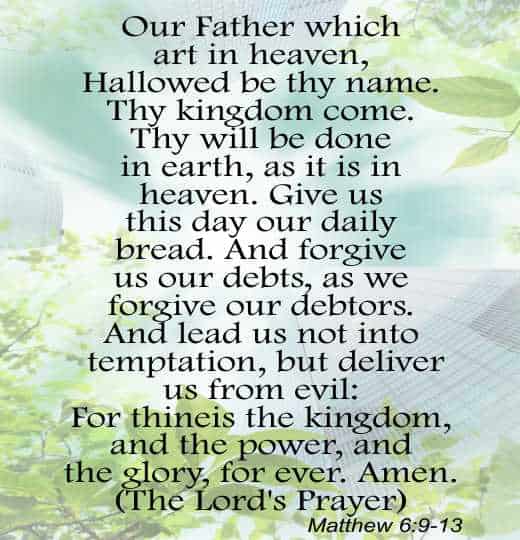Intimations
JAM Kids’ focus: The Virtual Sunday School ‘The Greatest Commandment.’
JAM young adults have a separate programme Breakthru 7:00am-8:00pm looking at a series of issues in the ‘Youth Wellbeing Journey’. Please contact Gary Torbet on garytorbet@btinternet.com for more details of today’s programme.
‘Through Lent’ Baptist Union reflections Week 3
Baptist Union of Scotland National Prayer Livestream
The monthly prayer livestream takes place next tonight on Sunday 7 March, 2021 7.00–7.30pm.
Call to worship: Revelation 5:12-13:
12 In a loud voice they [the heavenly beings] were saying:
‘Worthy is the Lamb, who was slain,
to receive power and wealth and wisdom and strength
and honour and glory and praise!’13 Then I heard every creature in heaven and on earth and under the earth and on the sea, and all that is in them, saying:
‘To Him who sits on the throne and to the Lamb
be praise and honour and glory and power,
for ever and ever!’
Our opening song of praise and worship is: ‘At the name of Jesus’
Opening prayer
Heavenly Father we come with a sense of privilege into Your holy presence today as we desire to glorify and honour You in our praises and prayers. We join with the angels and other heavenly beings who declare in heaven: ‘To Him who sits on the throne and to the Lamb be praise and honour and glory and power, for ever and ever!’
Thank You that in this ever changing world You are our constant reference point, our anchor, that gives us our sense of perspective. You are the One who gives us our sense of direction and purpose. Lord, as we gather at the start of another new week we do so seeking You to speak into our lives as we sing Your praises and listen to Your Holy Word being read and expounded. Cleanse us afresh from our sins and fill us afresh with the enabling power of the Holy Spirit as we enter the new week before us, in Jesus’ name, Amen.
Let us say together the words Jesus taught His disciples when He said:
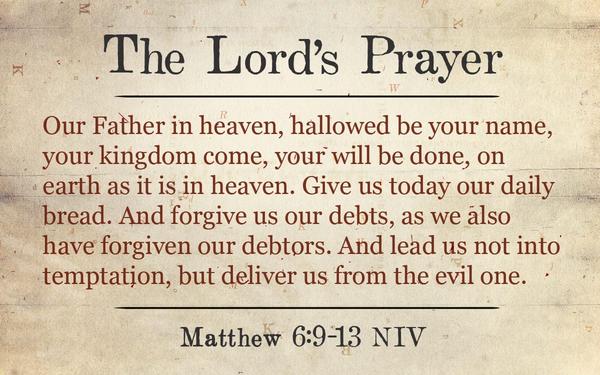
All Age Talk – Alan McRobbie
How to experience peace when times are tough
Life doesn’t always have sunny mountain top moments when everything in our lives is going well. There will be times when we have the dark valley moments when we are stressed, worried, doubtful, and fearful by what is happening to us or to someone we care about. These are forces within us which steal our peace and leave us to experience unwanted thoughts and feelings. Suffering in our lives and in the lives of those we care about happens. How we act at these times will say something about who we rely on.
It’s normal for us to be led by and be affected by our feelings. But Christians have someone in their lives whom others don’t. Christians have Jesus Christ. Jesus said to his disciples,

“Peace” doesn’t mean that our troubling times will be taken away by Jesus. It means that during our troubles we are asking Jesus to provide us with a confidence that his love and work is within us, a confidence that he is in control, and that he will be there no matter what happens.
How do we experience Jesus’ peace when times are tough?
Below are five things that must happen to know the peace of Jesus:
1. We must have invited Jesus Christ to come in and control our life through the Holy Spirit (received Christ as our personal Lord and Saviour). In other word, we must be a ‘born again’ Christian.
2. We must believe that God is in control of our life and our circumstances. Otherwise, we will attempt to be in control. There’s no peace in that struggle.
3. We must believe that Jesus’ offer of peace is real and be willing to accept his offer in spite of how we are feeling.
4. We must fully give up our life, thoughts, plans and feelings to Jesus as our Lord.
When we experience Jesus’ peace, we have no need to fear what’s happening now or the future.
Psalm 69 – Let David be an example to follow. In his troubles we read that he is depending of God. He keeps turning to God in prayer. He is persistent in crying out to God. It appears that God did not rescue him immediately, but he perseveres. He could have given up, but he trusted God to help him cope.
- Save me, O God (v1)
- I am exhausted from crying for help; my throat is parched. My eyes are swollen with weeping, waiting for my God to help me (v3)
- But I keep praying to you, Lord, hoping this time you will show me favour (v13)
- Don’t let me sink any deeper! (v14)
- Answer my prayers, O Lord, for your unfailing love is wonderful. Take care of me, for your mercy is plentiful (v16)
- Let all who seek God’s help be encouraged (v32)
- For the Lord hears the cries of the needy (v33)
Worship Song ‘All that I am, all that I have’
Prayers for others
Heavenly Father,

We are conscious of the ongoing needs of so many people around the world who are going through such hardship at this time. We continue to remember the people of Myanmar suffering as a result of the brutal military leaders who have taken ever tighter control of their country.
Thank you for the brave men and women who have risen up to challenge this oppression, but we are particularly remembering in our prayers the families of those shot dead by the authorities simply for being out on the street to protest peacefully against all the injustice taking place. We are conscious that with the country increasingly closed to media and outsiders that ethnic and religious minorities will be suffering even greater hardships at this time. Lord have mercy upon them.
We remember also the people of Yemen. We are well aware that at least half of the population is dependent on food aid as a result of the deprivation caused by the ongoing war. We pray that the Western nations that have been so quick to pay for bombs and other weapons to be used on that country, devastating the lives of its citizens, will now be equally open to paying for the aid needed for many people simply to survive, let alone rebuild the country. Lord have mercy upon them.
We pray today also for people across the UK who run local businesses, who were already facing serious problems, but now find themselves struggling to stay afloat and stay in business. Father, may people staring into the abyss, find hope in You. Please enable our politicians to find effective means of helping businesses survive and those without work to gain adequate financial support to get through this difficult time. We thank You for the many churches and charities and other voluntary groups working together with local governments to support those in need in their local communities.

Today we also give thanks for Police Scotland and the men and women who serve as officers or other Police personnel, together with the other Emergency services staff during this challenging time. We pray that you would protect them Lord as they seek to bring peace and justice, and assist those in need in other ways in our land.
We pray too for Christian Chaplains working in hospitals across Scotland and the UK as a whole. Lord, in this difficult time when they will be supporting patients, grieving families and burned out healthcare workers we pray that you would give them the compassion and words they need to help people during this pandemic. May You uphold the Chaplains and may they also find the support they need at this time.
We pray for the following chaplains and churches:
George Hunter (P/T Chaplain, MHA Auchlochan) – We give thanks for being covid free at the care home and pray that we will continue to be vigilant in keeping ourselves and residents safe with the Lord’s help
George Hunter (also P/T Chaplain HM Forces) – We pray that they will be able to have an annual camp this summer. We pray that cadets and adult volunteers will be able to cope with lock down and not feel isolated. We pray for those who ‘aged out’ last year that they will find a place to ‘belong’ again.
Burra Isle BC, Shetland – We give thanks for technology and the wonders of Zoom as Burra Isle Baptist Church continues to meet online for their Sunday services and other meetings. We pray that the community in Burra Isle will know God’s goodness and provision in the year ahead.
Calderwood BC, East Kilbride – We give thanks for the amazing work Calderwood Baptist does to support those on low incomes through the East Kilbride Foodbank, CAP Jobs Club and many other initiatives. We pray for the church as they seek to share the good news of Jesus with the people they serve and walk alongside in the local community.
Callander Baptist Fellowship (Stirling BC Church Plant) – We give thanks for the church community in Callander who have recently renamed themselves as Callander Baptist Fellowship. We pray for them as they meet together online at the moment, that they will know God’s creative presence with them spurring the church on to even greater things for God’s Kingdom.
Cambuslang BC – We pray for Cambuslang Baptist Church that they will know God’s leading and guiding at this time as they encourage one another, worship together and serve the community
We come to pray for the needs in our own congregation:
Heavenly Father,
We thank you for the progress made by Helen S since she came out of hospital. We continue to pray for further progress in the recovery of her health and strength. We also remember Shona H’s niece Lynne after her time in hospital and Sheila B who has been unwell recently and pray for the restoration of her health.
We bring before You Jeanne P in Ninewells Hospital and pray for the recovery of her health and strength.
We also continue to remember Alison A, Betty R, Fiona K, Dorothy G, Fiona McC, Mary D, Nicola L’s Dad Lawrie and Margaret – Ann W’s sister and Fergus R at this time.
We also continue to pray for a restoration of health for other members of our congregation or members of their families…
We pray too for anyone else with ongoing health conditions and bring them before You now…
We pray for the people whom we cannot visit in residential care, and others who are at home on their own, together with others in our church family who are feeling the effects of increasing age and infirmity…
We continue to pray for those who have been bereaved and ask Your comfort for them …
We now pray silently for anyone else known to us who is in need of our prayers at this time…..
We pray also for our own needs…
We bring all these prayers before you in Jesus’ name,
Amen.
Bible Reading
11 Since, then, we know what it is to fear the Lord, we try to persuade others. What we are is plain to God, and I hope it is also plain to your conscience. 12 We are not trying to commend ourselves to you again, but are giving you an opportunity to take pride in us, so that you can answer those who take pride in what is seen rather than in what is in the heart.
13 If we are ‘out of our mind,’ as some say, it is for God; if we are in our right mind, it is for you. 14 For Christ’s love compels us, because we are convinced that one died for all, and therefore all died. 15 And he died for all, that those who live should no longer live for themselves but for him who died for them and was raised again.
16 So from now on we regard no one from a worldly point of view. Though we once regarded Christ in this way, we do so no longer. 17 Therefore, if anyone is in Christ, the new creation has come: the old has gone, the new is here!
18 All this is from God, who reconciled us to himself through Christ and gave us the ministry of reconciliation: 19 that God was reconciling the world to himself in Christ, not counting people’s sins against them. And he has committed to us the message of reconciliation.
20 We are therefore Christ’s ambassadors, as though God were making his appeal through us. We implore you on Christ’s behalf: be reconciled to God. 21 God made him who had no sin to be sin for us, so that in him we might become the righteousness of God.
6As God’s fellow workers we urge you not to receive God’s grace in vain. 2 For He says, ‘In the time of My favour I heard you, and in the day of salvation I helped you.’ I tell you, now is the time of God’s favour, now is the day of salvation.
II Corinthians 5:11-6:2
Before we come to listen to God’s Word let us sing: ‘All Heaven Declares’
The Message
Pre-recorded version of the message
II Corinthians 5:11-6:2 Our primary calling
Introduction
All of us are passionate about something. Some people wear their emotions ‘on their sleeves’; others by contrast look like blocks of granite and rarely show any emotions at all, like Ivan Lendl, the well-known former Czech-American tennis player. All of us have particular temperaments and display our feelings in distinctive ways.
With family members and friends we can predict fairly easily how they will react in a variety of situations. The question we need to answer is this: what is it that you and I are most passionate about? What would you say would give you the greatest happiness if you could make a list of choices? In our world the range of choices would, I suspect, be limited to a relatively small number of predictable options.
There would be some people who would put winning the national lottery at the top of the list; or some similar financial windfall. A further group would look to sporting achievements, such as an Olympic gold medal or the equivalent attainment in other sports. A proportion of people would look to academic or work-based success, with the aim of being recognised in their careers as contributing something of major significance through their endeavours.
In our celebrity and multi-media age the lure of fame would be the primary appeal to others. Yet what would your answer be or mine? This is very hard at times because we can all say the right words about how Jesus comes first, but the living out of that claim in practice is very difficult.
It is my conviction that if Jesus was truly Lord for every person that named the name of Christ in Scotland then our country would be transformed for good and for God; if every churchgoer was passionate about honouring our Lord and Saviour and relating as Jesus would have us do with our fellow attenders then there would be queues outside an increasing proportion of church premises on the Lord’s Day, not empty pews and merged congregations up and down the land.
The dedication of men and women who have served in this church over recent decades has been honoured with the blessings we have experienced here in the twenty-first century, but if it is to continue then we too must show at least that same level of dedication and commitment in the coming months and years. In these verses in II Corinthians the apostle opens his heart to these Christians to reveal his motivation for mission; his zeal for the gospel and his love for Jesus Christ and lost people. When our heads and our hearts are united in commitment to a cause as our primary concern it will undoubtedly determine our priorities in terms of our time; our financial choices and the use of our gifts and abilities.
Paul serves as a model New Testament Christian for us, an imperfect flawed person like you and me, yet one whose love for Jesus and whose dedication to the cause of the gospel was second to none.
1. Our motivation for mission (II Corinthians 5:11-15)
(a)The fear of the Lord (5:11-13) This section begins: Since, then (NIV) (or therefore in the original Greek), on the basis of what I have just recorded says Paul, doing nothing is simply not an option. It is simply a question of what we should do and how we do it in the light of the fact of what Jesus has done for us and that we will one day stand in front of His nail-pierced hands and give an account of what we have done for Him. Our challenge is to live now in a way that will be credible when we stand before Him on that day. The apostle reminds us that there are two emotions the child of God will experience concerning this great task before us.
The first is given in these three verses: Since, then, we know what it is to fear the Lord, we try to persuade men. In the last hundred years of church history in this land the notion that Christians should fear the Lord would be deemed rather shocking not just amongst the wider population, but in an increasing proportion of churches as well. This is a huge concern because, for example,
Proverbs 1:7 reminds us that: The fear of the Lord is the beginning of knowledge, but fools despise wisdom and discipline. In other words a person who dismisses this reality as unchristian or outdated has not even begun to grasp anything of the nature of God and of the seriousness of our calling as His children.
By contrast Proverbs 29:25 states: Fear of man will prove to be a snare, but whoever trusts in the Lord is kept safe. Abraham while living in Philistine territory, expressed a deep concern about the probable behavioural choices of the local people because, he said: There is surely no fear of God in this place (Genesis 20:11).
In that context he was speaking of people outside the community of faith who worshipped Yahweh. However, how much more profoundly sad it is when such words could be said of individual churches or families of churches when decisions are taken in meetings motivated by a greater fear of what unbelievers might think outside their ranks than by the God of heaven before whom they will one day stand on the Day of Judgement.

John Knox, a timid soul, shrank from the limelight until he grasped something of what it means to fear the Lord more than Queens and Cardinals, or even death itself. Why is this important?
Proverbs 14:26: He who fears the Lord has a secure fortress, and for his children it will be a refuge. Whom do you fear most the Lord or the people around you? Christian people in our generation need afresh to grasp the challenge posed by the apostle Paul. Unless we have a right attitude towards God then we cannot expect people outside the church to do so. It is not simply something for believers, but a challenge for all people. The pagan sailors who threw Jonah overboard and saw the storm cease had this reaction: At this the men greatly feared the Lord, and they offered a sacrifice to the Lord and made vows to Him (Jonah 1:16).
Likewise the disciples of Jesus in John 4:35-41, in the midst of a terrible storm in which they thought they might drown, pleaded for Him to stop the tempest and when the winds ceased and the waters became calm at His command, Mark reported that: They were terrified and asked each other, Who is this? Even the wind and the waves obey him! (Mark 4:41). This is not a cringing fear, like that experienced by a medieval peasant about to be stretched out on the infamous torture instrument ‘The Rack’. It is a profoundly healthy respect and reverence for someone that gives us such a commitment to them that we would do anything in the world than incur their displeasure or consciously go against their express decrees.
I would hope that many of us had godly parents who lived a life that we would seek to emulate and would shrink from departing from the principles they laid down for us. How much more ought we to reverence our great God and Saviour and honour His standards in the face of the very real opposition from an increasingly hostile secular world. Yet this is not our only emotion, Paul reminds us that a second emotion is equally compelling to him, and hopefully to us:
(b) The love of Christ (5:14-15) The highest motivation of all is love –yet here Paul is careful to state that it is Christ’s love for His people that motivates us to love other people in return. He is making the same point as John did in I John 4:10: This is love: not that we loved God, but that He loved us and sent His Son as an atoning sacrifice for our sins.
Would any of us be willing to sacrifice our only son for the benefit of a neighbour, or a person living in the next street? The likely answer is no! For another family member it is much more likely, but it is still an extraordinary action; the love of Christ had been his highest motivation since he had been arrested by Christ on the Damascus Road some years earlier.
In the familiar passage in Romans 8:35-39 Paul’s passionate grasp of this matter is plain for all to see: Who shall separate us from the love of Christ? Shall trouble or hardship or persecution or famine or nakedness or danger or sword? 36 As it is written: For your sake we face death all day long; we are considered as sheep to be slaughtered. 37No, in all these things we are more than conquerors through Him who loved us. 38For I am convinced that neither death nor life, neither angels nor demons, neither the present nor the future, nor any powers, 39 neither height nor depth, nor anything else in all creation, will be able to separate us from the love of God that is in Christ Jesus our Lord.
Does this divine love tug at your heart-strings and give you the highest and most noble motivation to live for God and serve other people? It is no surprise that Paul’s life motto: For to me, to live is Christ and to die is gain (Philippians 1:21) was a fair reflection of his life choices. A person consumed with genuine love for God will influence others for God.

The great Reformation preacher George Wishart, whose ministry transformed Dundee, but who died a martyr’s death in St Andrews, was such a person, whose witness affected a young man that day in the crowd. According to one story, Wishart’s executioner asked forgiveness before the act, and Wishart kissed him saying, “Do thy duty.” It is also reported that Wishart’s former body guard, watching at a distance, prayed, “Lord, make me like that man.” The claymore wielding guard was none other than John Knox, who was later captured by Mary de Guise and sentenced to row as a galley slave aboard a British ship.
Knox rowed for nineteen months praying: “God give me Scotland or I’ll die.” Two thousand years ago the greatest evangelist of the Early Church, Stephen, was murdered (Acts 7-8), but a witness of that event was so moved by what he saw of his love for the Lord Jesus that he too would come to faith and become the person who would take Stephen’s place as the apostle to the Gentiles.
Why was Paul so moved by the love of Christ? It was because His voluntary sacrifice on the cross, sufficient for all, efficient for His Church, once for all time brought reconciliation between God and sinful humanity. The first Adam’s sin as our representative brought the curse of sin to our race; the second ‘Adam’ brought redemption. Paul in Romans 5:17 put it this way: For if, by the trespass of the one man, death reigned through that one man, how much more will those who receive God’s abundant provision of grace and of the gift of righteousness reign in life through the one man, Jesus Christ.
The love of Christ in offering Himself as the substitute for sinners on the cross, taking the punishment that we deserved was the most extraordinary act in history. Philip Hughes (II Corinthians, pp. 195-6), explained its significance so clearly: On His dying for me, His meeting the demands of God’s justice in my stead, depends the reality of my justification; and on my dying with Him depends the whole possibility of my sanctification. The One who loved us so much to redeem us from the penalty of sin has given us the Holy Spirit to help us overcome the power of sin. Will your testimony and mine be in line with that of Paul, as expressed in Galatians 2:20? I have been crucified with Christ and I no longer live, but Christ lives in me. The life I live in the body, I live by faith in the Son of God, who loved me and gave Himself for me.
2. Our perspective on mission (II Corinthians 5:16-19)
(a) How we view people outside of Christ (5:16) So from now on we regard no-one from a worldly point of view. Though we once regarded Christ in this way, we do so no longer.
In the wider world your social class and relative wealth or poverty is significant. You may be valued or ignored depending on whether you can ‘tick certain boxes’. A number of years ago at a castle in the south of England, one of the younger members of the Royal family was having a birthday party. A smooth-talking individual fooled the people on the door concerning his background. He convinced them that he had come from the same privileged circles as the other guests. He could certainly talk the talk but was found out when he chose the wrong glass to drink champagne and under pressure then made a wrong choice with an unexpected item of cutlery. A person reared in those circles would have never made that kind of mistake!
How do we view people that enter our churches as visitors? Would we treat a disadvantaged person off the street as well as someone else who was economically advantaged? It is profoundly sad that racism and social class divides have been issues within churches, not just in the wider society. It is troubling that these issues still have to be addressed in the twenty-first century. It is a constant challenge in each congregation as well as in other Christian organisations to ensure we are genuinely welcoming those who seek to join with us.
Simply erecting a sign saying ‘All are Welcome’ is insufficient. James chapter two, for example, that challenges social class prejudices is a solemn warning to churches that fail to address this issue. In Paul’s day the issue that he hints at here was a battle amongst Jewish followers of Jesus. There were some Jews who because they had seen or heard Jesus during the time of His earthly ministry viewed themselves as superior to other believers.
In Corinth, amongst the various cliques described in I Corinthians 1:12-17, was a faction that claimed to follow Christ (v12). It is likely that the so-called ‘super apostles’ who made life so difficult for Paul belonged to this group. They had failed to grasp that Jesus does not belong exclusively to any one branch of His followers; by contrast, we belong to Him, if our faith is real, and that makes a world of difference. Over the course of history a willingness to address this issue has been one of most significant factors in the spread of Christianity all over the world.
A passion for saving souls has been proclaimed alongside one for social justice, as two sides of the same coin. The tragedy of Western Christianity over the majority of the twentieth century had been that the majority of conservative and liberal Christians (in theological terms) decided that evangelism and social action were choices of which you picked only one at the expense of the other. A biblical gospel is a holistic one, something that has been broadly accepted over the last fifty years.
(b) How we view fellow-Christians (5:17) Therefore, if anyone is in Christ, he is a new creation; the old has gone, behold [omitted in NIV] the new has come!
In verses 16 onwards the apostle is dealing with the consequences of a right view of Jesus. From our attitude to the wider population, he turns to how we view other followers of Jesus. A person identified with the dead-and-resurrected Jesus cannot be other than a transformed person when they are in Christ, to use Paul’s favourite theological expression.
Such a person has security in Christ because He in His own body bore the judgement of God against your sin and mine; it indicates acceptance in Christ, the One with whom uniquely God is well-pleased; it provides assurance for our future in this life and beyond the grave, in Christ who is the resurrection and the life; it points to our future glorious inheritance, in Christ, who has gone to prepare a place for us in His eternal home; it speaks of participation in the divine nature in Christ who is the everlasting Word; it declares a revelation of the truth, and being set free by it, in Christ, who is the truth; in essence, if anyone is in Christ, he is a new creation; the old has gone, behold the new has come, hallelujah! What a note of triumph!
But does the life we lead for the Lord reflect the reality of the victorious life-changing gospel Jesus has provided for us? Do we value the people for whom Christ died –as He does? Do we want to work together with them, for His glory, as He desires? Yet recognising that all of our lives are like a building site where the divine builder is at work and none of us are yet the finished article. If you come across a perfect church don’t join it unless you are already like them! However, let us never rest content that the quality of relations within our congregations are as good as they can be, for Jesus’ sake.
(c) How we view our missionary God (5:18-19) God’s people are called to share God’s heart for His world. John 3:16 states: For God so loved the world that He gave His one and only Son, that whoever believes in Him shall not perish but have eternal life.
God’s love here is not just for the people but the whole created order; that is why looking after our planet as good stewards of the resources entrusted to us is so important. God took great delight in planning a beautiful world in which Adam and Eve and their successors would live. Human beings have trashed the planet and the health, climate and other environmental implications of our actions are now coming home to us. His love was never exclusive to humans but for all creation.
Although we, uniquely, are created in His image to glorify Him and enjoy Him for ever (to use the language of the seventeenth century catechisms); is the church a force for reconciliation in the world? The answer should be an unequivocal ‘yes’, but where churches are tied to states and associated with the respective politicians the reality too often has been an unequivocal ‘no’; take the Balkans, for example, where Roman Catholic leaders in Croatia and Orthodox clerics in Serbia have been complicit in justifying state violence against neighbouring civilians in the war in former Yugoslavia in the 1990s, and especially in Croatia half a century earlier in the years leading up to the World War II.
A far better witness came from the ecumenical Christian Moral Rearmament movement that engaged with German political leaders after World War II, to enable them to re-enter the political mainstream; or people like Joao Matwawana (biography by John. F. Keith, War is never enough), who led reconciliation initiatives between Hutus and Tutsis in refugees camps after the horrific slaughter in Rwanda some years ago.
Yet we must never apologise that our greatest mission on earth is to proclaim the good news to sinners that in Jesus alone can they be certain of eternal life. God, in the person of Jesus, left the glory of heaven coming down to this world to save us; we have a calling to go wherever it takes from our local community to the ends of the earth to proclaim the glorious gospel of God. In a world of hopeless despair we have a message that can transform both individual lives and communities. May we never cease to proclaim it all the days of our lives.
3. Our focus in mission (II Corinthians 5:20-6:2)
The last part of this section of the letter, 5:20-6:2, concludes with a challenge both to believers and unbelievers, those already in Christ together with those yet to come to faith in Jesus.
First of all: (a) The message to those outside of Christ (5:20) Have you ever stopped to think that as a Christian you are an ambassador for Jesus Christ? It is a great honour to represent your country overseas, especially if your words are the pronouncement of Her Majesty’s Government. Yet we have an even greater honour as representatives of King Jesus.
Nearly two hundred years ago the great Baptist missionary to India, William Carey, heard that his son Felix, also a serving missionary in Asia, had been offered the post of British Ambassador to Burma. This was almost unheard of for a Nonconformist Christian in that era. However, Carey was distressed that his son had accepted the new post. He wrote a letter to his son expressing his regret that Felix had accepted a demotion from the service of the King of Kings to that of the King of the United Kingdom! We, I trust, understand the point being made.
Our primary calling is this, to people outside the faith: We implore you on Christ’s behalf: Be reconciled to God. Do the people you and I know how important it is for them to put their faith in Christ? Do they know that they face an eternity separated from all that is good and God if they leave this life unsaved? This is not a popular message today in the wider community. What is worse is that there are even churches that find the exclusive claims of the Gospel of Jesus offensive! What such professing Christians have failed to grasp is this: if there was another way to be saved then the cross must be seen in a different light. It was either the greatest act of love in history or the most brutal act of violent betrayal and cruelty, in which God the Father comes across in the most unflattering light –if Jesus is not the way of salvation.
This was certainly how the Early Church saw it, despite the offence taken in their day. Acts 4:12 states: Salvation is found in no-one else, for there is no other name under heaven given to men by which we must be saved. There was also a challenge from the apostle to Christians, containing some of the most extraordinarily precious words in the whole of the Bible.
(b) The message to believers (5:21-6:2) II Corinthians 5:21 is one of the most extraordinary verses in the Bible. Read it and re-read it again and again and marvel at what God has done. The perfect Son of God, while on the cross, was treated for those dark hours as if He had committed our sins and punished accordingly. Yet at the very same time God the Father loved His Son, not one jot less than before, because this was the only way to bring reconciliation between a holy God and a sinful humanity.
In addition, Jesus committed no sin (I Peter 2:22) and has been tempted in every way, just as we are, yet was without sin (Hebrews 4:15). This action was not an arbitrary or impulsive one, but a plan agreed between the Father and the Son, out of love for guilty sinners such as you and me, so that instead of facing hell we can be certain of heaven. Instead of God the Father looking at us and seeing our imperfections and sin, in Him (Jesus), we are viewed as perfectly righteous covered with the righteousness of Jesus.
This is a not a game of divine ‘peek-a-boo’; Amazingly, God the Father is treating His children on earth, in principle, as if we had become already what we will be like in heaven. Therefore, granting us free access in prayer into His presence and blessing us with all kind of blessings in Christ. If God has blessed you and me to this extent and gone to these lengths to give us His grace, then may He enable us, in Paul’s words to the Church at Ephesus, to grasp how wide and long and high and deep is the love of Christ, 19 and to know this love that surpasses knowledge— that you may be filled to the measure of all the fulness of God (Ephesians 3:18-19).
The more we ourselves understand His amazing love the more we will want others to know it too, and evangelism will not be a programme we fit onto the church schedule, but a lifestyle that flows naturally from the heart of a person committed to following Jesus Christ. May that be you and me, for His name’s sake, Amen
Our song before we come to communion is: ‘Thank you for the cross, Lord’
The Lord’s Supper
Jesus invites all Christian who have committed their lives to follow Him to participate in this act of worship. The apostle Paul wrote these words of Scripture in I Corinthians 11:23-26 to guide our observance of Communion.
For I received from the Lord what I also passed on to you: the Lord Jesus, on the night He was betrayed, took bread, 24 and when He had given thanks, He broke it and said, ‘This is My body, which is for you; do this in remembrance of Me.’ 25 In the same way, after supper He took the cup, saying, ‘This cup is the new covenant in My blood; do this, whenever you drink it, in remembrance of Me.’ 26 For whenever you eat this bread and drink this cup, you proclaim the Lord’s death until He comes.
Prayer: Choose your own words of prayer to give thanks for the bread and wine that represent the costly gift of His body and blood for us.
Take the bread: Jesus said: ‘This is My body, which is for you; do this in remembrance of Me.
Take the wine: Jesus said: This cup is the new covenant in My blood; do this, whenever you drink it, in remembrance of Me.’
Our closing song is: ‘We have an Anchor’
Closing Prayer:
Lord Jesus, we are so humbled by the privilege that You have entrusted to us of serving as Your ambassadors in this world. We feel so inadequate to the task before us, but we rejoice that we are not asked to do it on our own, but as members of communities of faith in our local areas called churches.
Thank You that together Your people down the ages have had wonderful and creative ways to communicate Your love to others in so many practical ways, both leading people to faith in Christ as well as serving our communities in fields such as education or social and health care. We rejoice too, that in many other workplaces, likewise, Christians have contributed to so many fields of knowledge, inspired by a desire to honour You. We ask that You would strengthen us for all that lies before us in this coming week, in Jesus’ name we pray, Amen.
Benediction: The Grace







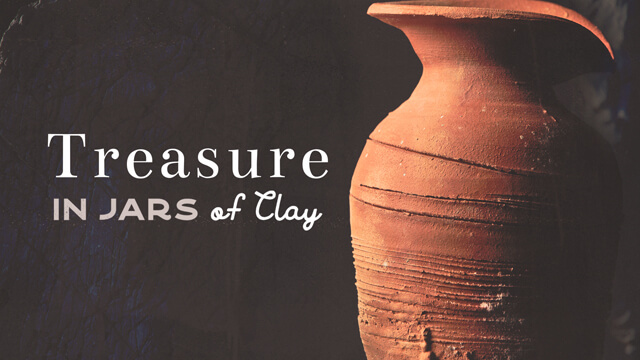

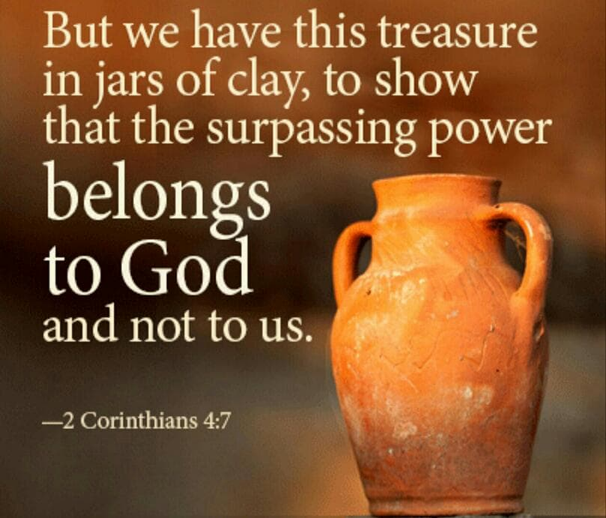





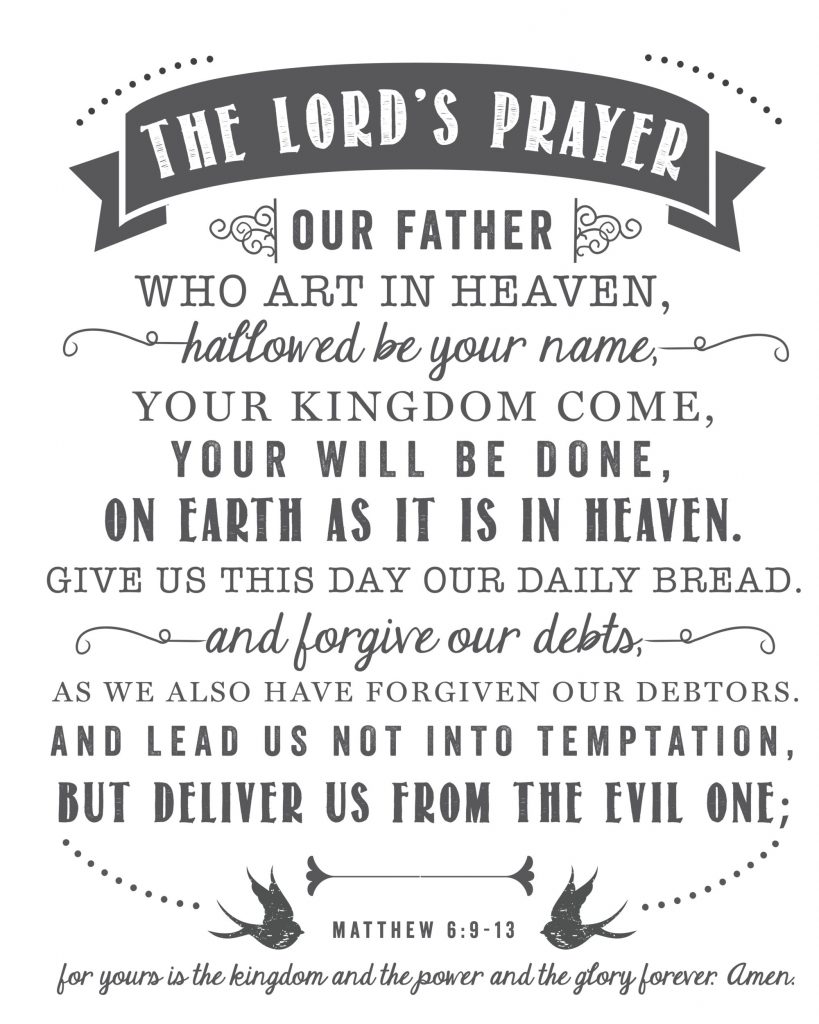











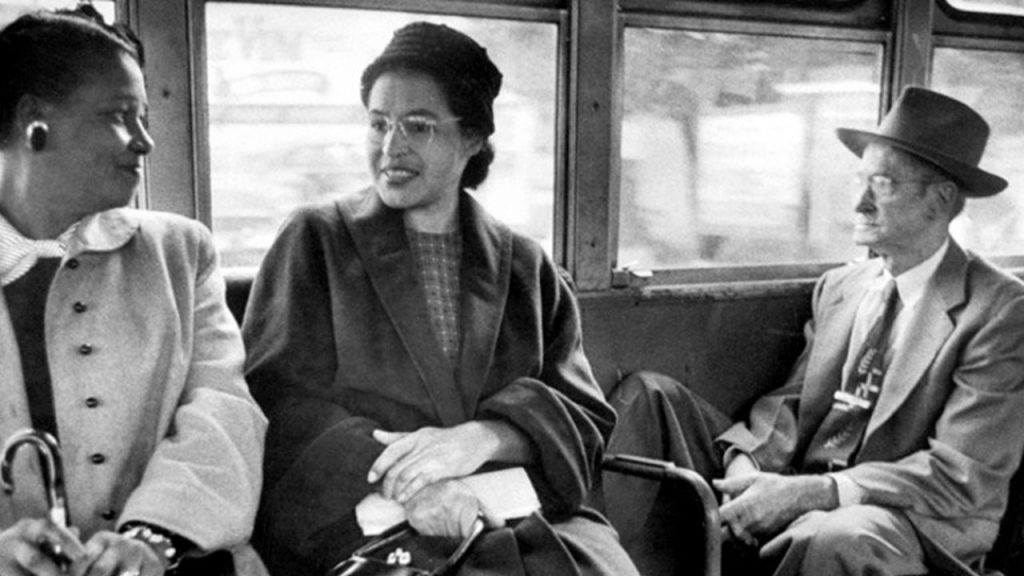
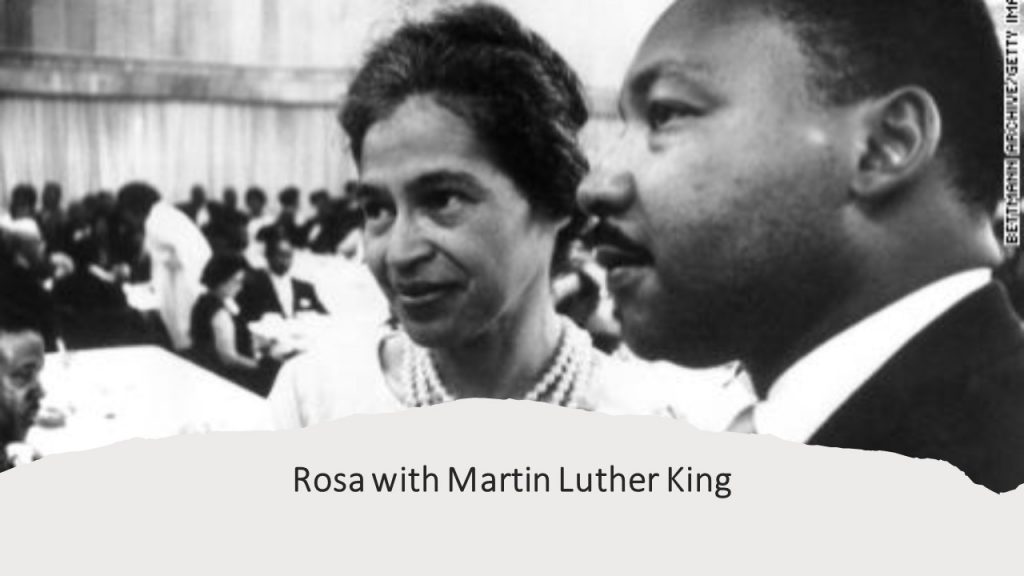

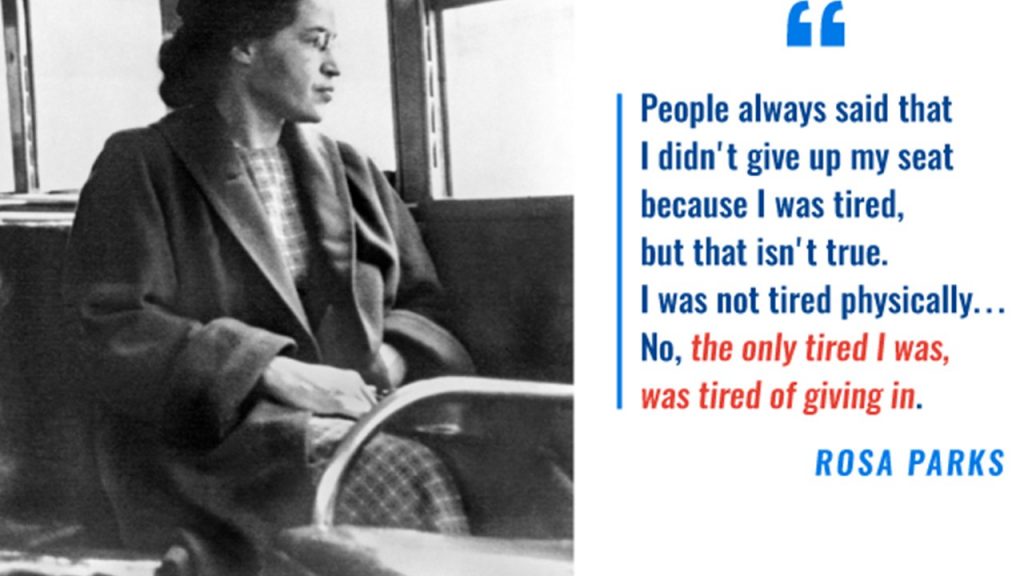


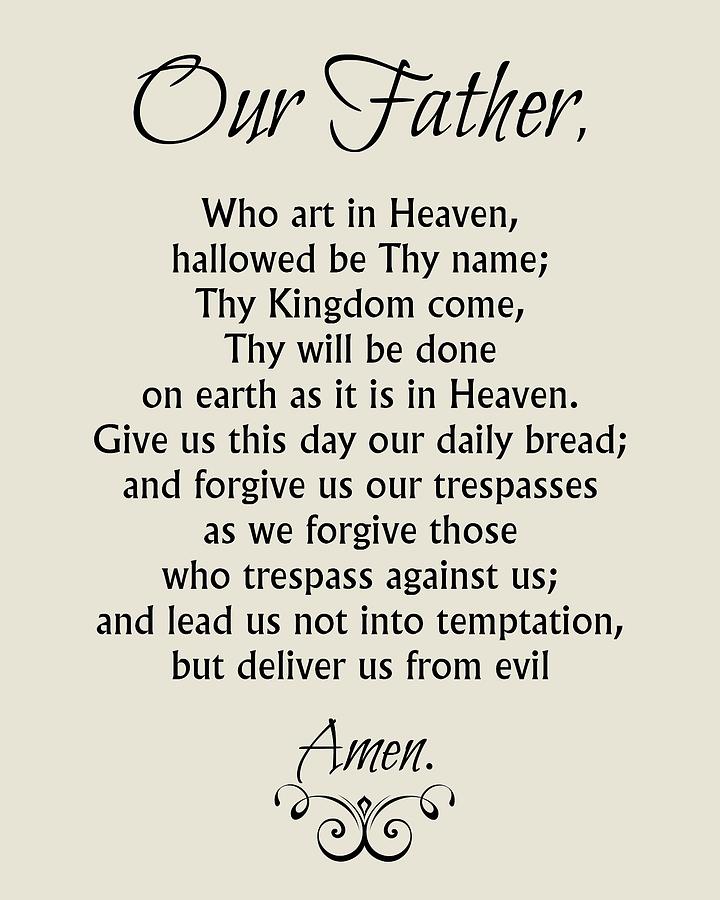


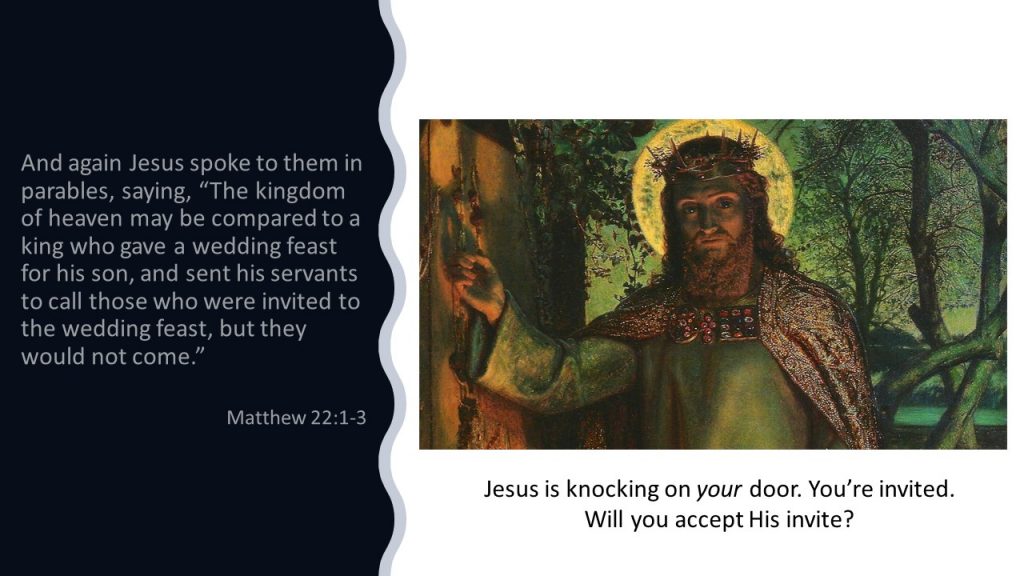


:fill(white):quality(80)/https://www.vashi.com/static/media/catalog/product/v/a/V1V19040-PLT_1.jpg)



